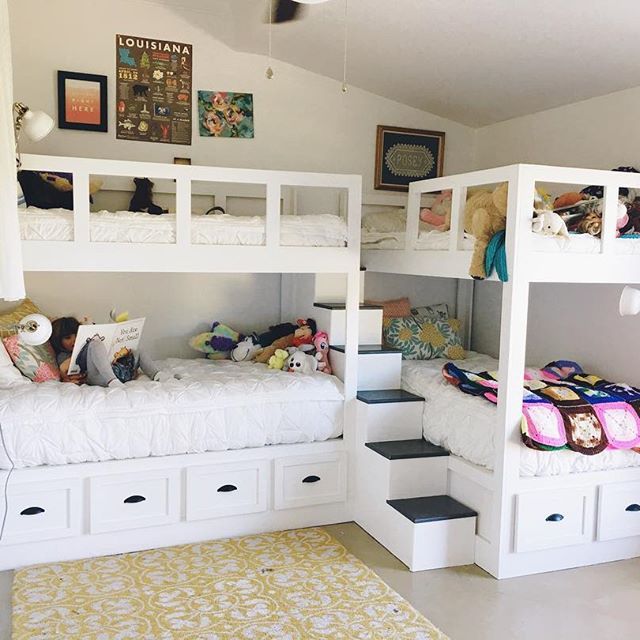Bunk beds that are designed or intended for children 12 years of age or younger are subject to surface coating requirements lead and phthalate content limits testing and certification and tracking label requirements.
Bunk beds age requirements.
What age are bunk beds suitable for.
Because of the height associated with the loft levels these injuries are often more serious than if the same type of injury occurred on a regular furniture item lower to the ground.
On average there are 36 000 per year and the sad thing is that they re completely preventable.
The cpsc also enforces mandatory rules pertaining to bunk beds.
Bunk beds must have continuous guardrails on both sides of bed.
You may also consider placing a lamp or clip light to further improve bunk bed safety so that the ladder can be illuminated at night and youngsters can climb down safely.
Current guidelines recommend that the upper bunk is not suitable for children under the age of six.
16 cfr parts 1213 and 1513 consumer product safety standard for bunk beds.
Rospa recommends that children under the age of six years do not use the upper bunk 1.
Every bunk bed must have an affixed label that states the bed s manufacturer model and mattress size information and advises against placing children under six years of age on the upper bunk.
Babies should always have their own cots.
Parents should also consider very carefully whether allowing a child younger than six to sleep on the bottom bunk is safe for them toddlers can get trapped.
The tops of the guardrails must be no less than 5 inches above the top of the mattress.





























